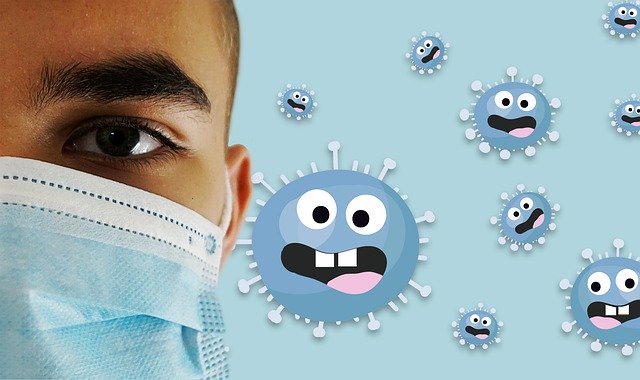Schools have been closed for the last couple of months since the coronavirus pandemic began to spread across the country. Stories about the virus’ effects and death rates abound on the news and on social media. Usually, we wouldn’t expect children to be too affected by broadcasts about a new disease unless someone close to them gets sick. In this case, however, their lives have been upended by school closings, parents working from home (or losing their jobs), the requirement to shelter in place and wear masks, and the inability to gather with friends or go to familiar venues.
Children are also likely tapping into their parent’s own fears and concerns. In turn, they may worry that they, their friends, or their family will catch COVID-19. We can estimate how this affects American kids by reading through the studies that were done on children in China, where the outbreak began.
In an article on Psychology Today, Jamie D. Aten, Ph.D., founder and Executive Director of the Humanitarian Disaster Institute at Wheaton College, reports that, “due to uncertainties surrounding the outbreak and ongoing scientific research, it’s estimated that 220 million Chinese children are at a risk of facing mental health issues due to potential prolonged school closure and home containment.”
If this is true for the children in China, why would it be any different here for kids in the United States?
Why Kids Need Mental And Emotional Support During COVID-19
The stress and apprehension surrounding the coronavirus pandemic has altered children’s day-to-day world in a huge way. We know that natural disasters such as this can have a long term effect on kids, just as they can for adults.
As an example, one researcher, Carolyn Kousky, noted that in studies of children’s mental health after Hurricane Katrina, “researchers found high rates of PTSD symptoms as well as other negative mental health impacts and behaviors, such as aggression in adolescent.”
For older children, the added disappointments that have come along with the safer-at-home orders – such as the cancellation of graduations and proms, no school athletic games or activities, and isolation from friends – is sure to have emotional consequences, too.
In fact, it was reported in a 2013 study that researchers found that kids who had gone through a quarantine for disease control scored four times higher on a post-traumatic stress test than children who had not had that same experience.
How To Help Your Child Through Pandemic Anxiety
It’s important for parents and adult family members to help kids make sense of the pandemic, especially in an accurate way that minimizes their fears.
- Let your child know that you are available to talk if they have questions.
- When talking to your children, do so in a calm voice. Try to be reassuring and also remember that kids will pick up on cues in your body language and tone.
- Consider reducing or limiting news broadcasts and screen time so your child doesn’t become overwhelmed by news coverage of the pandemic.
- Remember that this pandemic can affect anyone, so try not to condemn or ridicule someone you know who may have contracted the virus.
- Remind kids that rumors run rampant on social media and that many stories are inaccurate.
Teach your children how to stay safe during the pandemic (and afterward):
- They should wash their hands with soap and water for at least 20 seconds (have them sing the birthday song twice as an easy way to count the time). They especially need to do this after sneezing, blowing their nose, or using the bathroom, and before eating or handling food. Hand sanitizer is a great option if soap and water are not available (supervise young children if they are using hand sanitizer).
- If your child needs to sneeze or cough, they should do it into their elbow or a tissue (then throw the tissue in the trash).
- Stay away from those who are sick or are sneezing or coughing.
- Keep things that they touch clean. Wipe down frequently used objects such as doorknobs, light switches, the television remote, their phone or tablet frequently with a disinfectant to avoid spreading germs.
It’s important for parents to take steps to address and reduce any COVID-19 anxiety their children may have, so they can avoid any long term consequences. KidsHealth.org provides some great resources for keeping kids busy during the pandemic and offers some helpful hints for addressing the topic with your child.
Connect With A Child Psychologist At Our Children’s Center
If your child is experiencing anxiety related to the COVID-19 pandemic, our child psychologists are available for online services. For more information, contact the Children’s Center for Psychiatry Psychology and Related Services in Delray Beach, Florida or call us today at (561) 223-6568.

